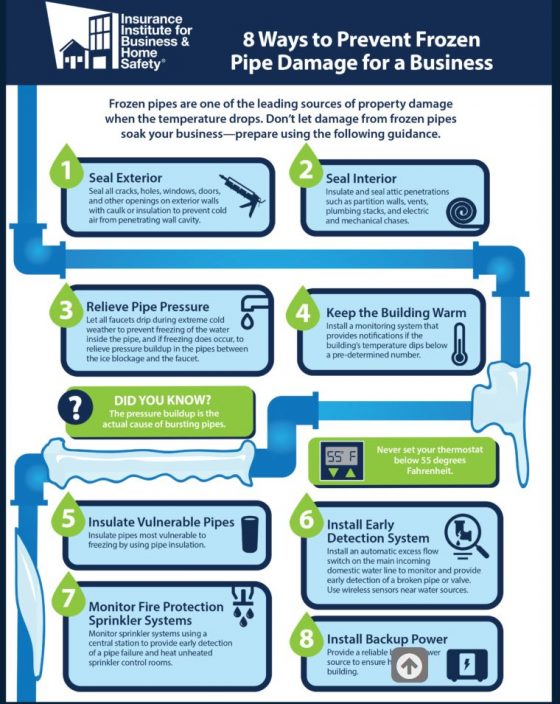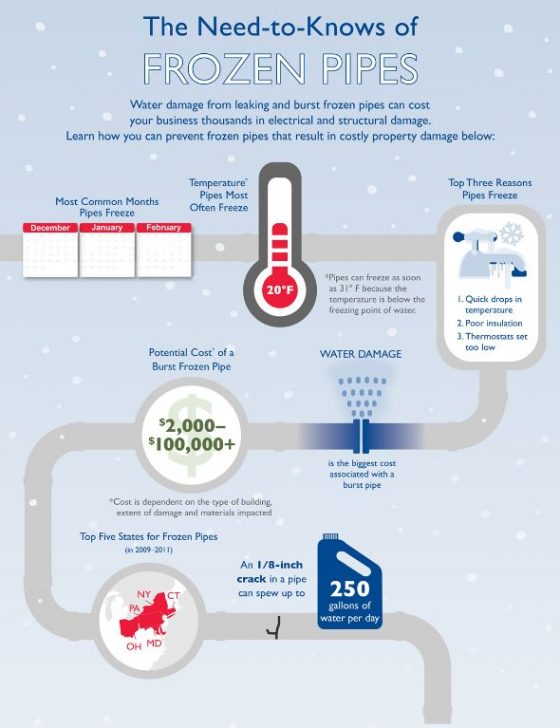Freezing weather can bring the unexpected, from slippery sidewalks and ice dams to one of the most common problems—frozen water pipes. Knowing what conditions can cause pipes to freeze is the first step to prevention. If pipes do freeze, a quick response can keep them from bursting, avoiding the expense of replacement, possible water damage to walls, floors and electrical systems, or even a business shutdown.
According to the Insurance Institute for Business & Home Safety (IBHS), 37% of all frozen pipe failures occur in a structure’s basement. What’s more, pipe insulation to keep water pipes from freezing in the first place costs much less than the price of repairs.
IBHS recommends these prevention steps for businesses:

Interstate notes that pipes are most likely to freeze in Connecticut, Maryland, New York, Ohio and Pennsylvania and that a 1/8 inch crack can cause the loss of 250 gallons of water per day and damages from $2,000 to $100,000.
According to Interstate:

If pipes freeze, Interstate recommends:
Do:
- Turn off the water flow using the main water valve
- Inspect the pipe carefully for cracks or damage
- Consult a plumber for advice, if you find cracks or signs of damage (also be sure to consult a professional if you aren’t sure which pipe is frozen and/or you are unable to inspect it)
- Thaw the pipe gradually using a hair dryer or space heater
- Confirm the pipe has thawed by turning the main water valve back on and making sure that water flows
- Take steps to raise the temperature in the area where the pipe froze or insulate the pipe
Don’t:
- Use a blow torch or open flame to thaw a frozen pipe – open heat sources can cause fires and other safety hazards
- Stand in water while you are operating an electrical heater, dryer or any appliance—you could be electrocuted
